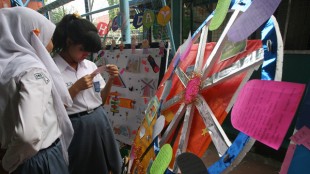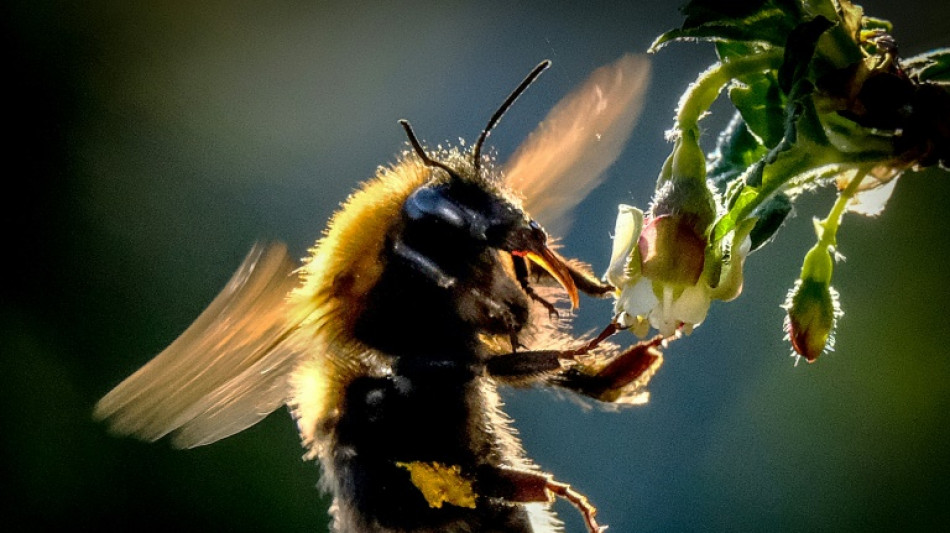
-
 Moscow chokes Telegram as it pushes state-backed rival app
Moscow chokes Telegram as it pushes state-backed rival app
-
ArcelorMittal confirms long-stalled French steel plant revamp

-
 New Zealand set new T20 World Cup record partnership to crush UAE
New Zealand set new T20 World Cup record partnership to crush UAE
-
Norway's Ruud wins Olympic freeski slopestyle gold after error-strewn event

-
 USA's Johnson gets new gold medal after Olympic downhill award broke
USA's Johnson gets new gold medal after Olympic downhill award broke
-
Von Allmen aims for third gold in Olympic super-G

-
 Liverpool need 'perfection' to reach Champions League, admits Slot
Liverpool need 'perfection' to reach Champions League, admits Slot
-
Spotify says active users up 11 percent in fourth quarter to 751 mn

-
 AstraZeneca profit jumps as cancer drug sales grow
AstraZeneca profit jumps as cancer drug sales grow
-
Waseem's 66 enables UAE to post 173-6 against New Zealand

-
 Stocks mostly rise tracking tech, earnings
Stocks mostly rise tracking tech, earnings
-
Say cheese! 'Wallace & Gromit' expo puts kids into motion

-
 BP profits slide awaiting new CEO
BP profits slide awaiting new CEO
-
USA's Johnson sets up Shiffrin for tilt at Olympic combined gold
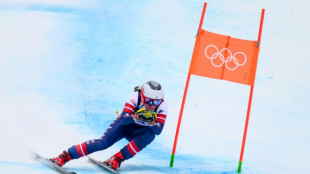
-
 Trump tariffs hurt French wine and spirits exports
Trump tariffs hurt French wine and spirits exports
-
Bangladesh police deploy to guard 'risky' polling centres

-
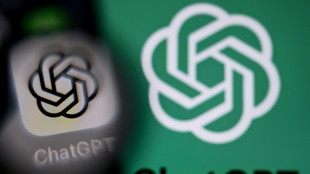 OpenAI starts testing ads in ChatGPT
OpenAI starts testing ads in ChatGPT
-
Three-year heatwave bleached half the planet's coral reefs: study
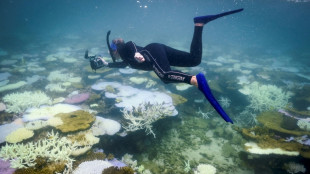
-
 England's Buttler calls McCullum 'as sharp a coach as I ever worked with'
England's Buttler calls McCullum 'as sharp a coach as I ever worked with'
-
Israel PM to meet Trump with Iran missiles high on agenda

-
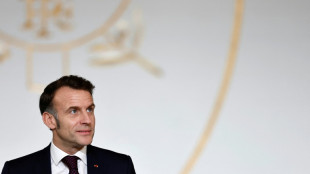 Macron says wants 'European approach' in dialogue with Putin
Macron says wants 'European approach' in dialogue with Putin
-
Georgia waiting 'patiently' for US reset after Vance snub

-
 US singer leaves talent agency after CEO named in Epstein files
US singer leaves talent agency after CEO named in Epstein files
-
Skipper Marsh tells Australia to 'get the job done' at T20 World Cup

-
 South Korea avert boycott of Women's Asian Cup weeks before kickoff
South Korea avert boycott of Women's Asian Cup weeks before kickoff
-
Barcelona's unfinished basilica hits new heights despite delays

-
 Back to black: Philips posts first annual profit since 2021
Back to black: Philips posts first annual profit since 2021
-
South Korea police raid spy agency over drone flight into North
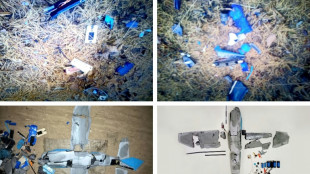
-
 'Good sense' hailed as blockbuster Pakistan-India match to go ahead
'Good sense' hailed as blockbuster Pakistan-India match to go ahead
-
Man arrested in Thailand for smuggling rhino horn inside meat
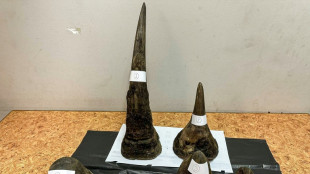
-
 Man City eye Premier League title twist as pressure mounts on Frank and Howe
Man City eye Premier League title twist as pressure mounts on Frank and Howe
-
South Korea police raid spy agency over drone flights into North
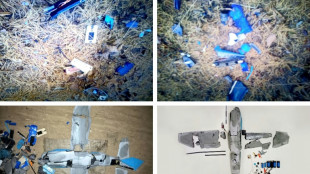
-
 Solar, wind capacity growth slowed last year, analysis shows
Solar, wind capacity growth slowed last year, analysis shows
-
'Family and intimacy under pressure' at Berlin film festival
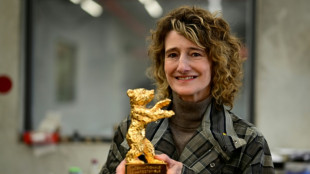
-
 Basket-brawl as five ejected in Pistons-Hornets clash
Basket-brawl as five ejected in Pistons-Hornets clash
-
January was fifth hottest on record despite cold snap: EU monitor

-
 Asian markets extend gains as Tokyo enjoys another record day
Asian markets extend gains as Tokyo enjoys another record day
-
Warming climate threatens Greenland's ancestral way of life
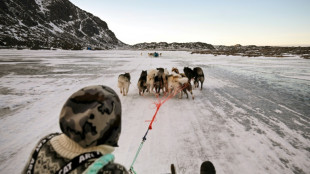
-
 Japan election results confirm super-majority for Takaichi's party
Japan election results confirm super-majority for Takaichi's party
-
Unions rip American Airlines CEO on performance

-
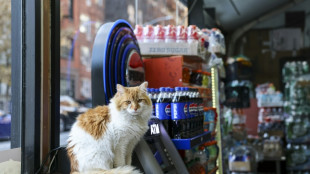 New York seeks rights for beloved but illegal 'bodega cats'
New York seeks rights for beloved but illegal 'bodega cats'
-
Blades of fury: Japan protests over 'rough' Olympic podium
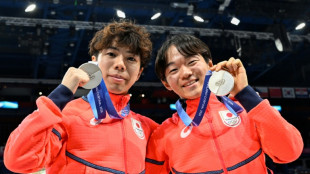
-
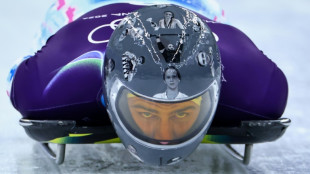 Zelensky defends Ukrainian athlete's helmet at Games after IOC ban
Zelensky defends Ukrainian athlete's helmet at Games after IOC ban
-
Jury told that Meta, Google 'engineered addiction' at landmark US trial

-
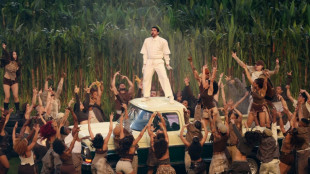 Despite Trump, Bad Bunny reflects importance of Latinos in US politics
Despite Trump, Bad Bunny reflects importance of Latinos in US politics
-
Intrusion Inc. Expands Business Development Efforts With Strategic Leadership Additions

-
 Osa Commerce Launches AI-Powered Retail Compliance at Manifest 2026 Targeting $5 Billion Chargeback Problem
Osa Commerce Launches AI-Powered Retail Compliance at Manifest 2026 Targeting $5 Billion Chargeback Problem
-
Datavault AI Recaps High-Impact Super Bowl LX Weekend with NFL Alumni, Live ADIO(R) Activations, DVHOLO(TM) and Tokenization

-
 Aspire Biopharma Regains Compliance with Nasdaq Minimum Bid Price Requirement
Aspire Biopharma Regains Compliance with Nasdaq Minimum Bid Price Requirement
-
Charlie's Holdings (OTCQB:CHUC) Selected for FDA Premarket Tobacco Product Applications Meeting


Not just humans: Bees and chimps can also pass on their skills
Bumblebees and chimpanzees can learn skills from their peers so complicated that they could never have mastered them on their own, an ability previously thought to be unique to humans, two studies said on Wednesday.
One of humanity's crowning talents is called "cumulative culture" -- our ability to build up skills, knowledge and technology over time, improving them as they pass down through the generations.
This ability to transfer abilities no individual could learn by themselves is credited with helping driving humanity's rise and domination of the world.
"Imagine that you dropped some children on a deserted island," said Lars Chittka, a behavioural ecologist at the Queen Mary University of London and co-author of the bee study.
"They might -- with a bit of luck -- survive, but they would never know how to read or to write because this requires learning from previous generations," he said in a video published with the study in the journal Nature.
Previous experiments have demonstrated that some animals are capable of what is known as social learning -- working out how to do something by observing others of their kind.
Some of these behaviours seem to have been perfected over time, such as the incredible navigational talent of homing pigeons or chimpanzees' ability to crack nuts, suggesting they could be examples of cumulative culture.
But it is difficult for scientists to rule out that an individual pigeon or chimp could not have worked out how to do achieve these feats by themselves.
So a UK-led team of researchers turned to the humble bumblebee.
- 'So surprised' -
The first step was training a crack squad of "demonstrators" to do a complex skill that they could later teach to others.
In the lab, some bees were given a two-step puzzle box. They were tasked with first pushing a blue tab, then a red tab to release the sugary prize at the end.
Alice Bridges, a study co-author also from Queen Mary University, told AFP: "This task is really difficult for bees because we are essentially asking them to learn to do something in exchange for nothing" during the first step.
Initially, the baffled bees just tried to push the red tab -- without first moving the blue one -- and simply gave up.
To motivate the bees, the researchers put a sugary treat at the end of this first step which was gradually withdrawn as they mastered the process.
The demonstrators were then paired up with some new "naive" bees, which watched the demonstrators solve the puzzle before having a go themselves.
Five of the 15 naive bees swiftly completed the puzzle -- without needing a reward after the first stage.
"We were so surprised," Bridges said. "We were all just going crazy" when it first happened, she said.
Alex Thornton, a professor of cognitive evolution at the UK's University of Exeter not involved in the research, acknowledged that it was a small sample size.
"But the point is clear -- the task was exceptionally hard to learn alone, yet some bees could solve it through social learning," he wrote in a comment piece in Nature.
The authors of the research said it was the first demonstration of cumulative culture in an invertebrate.
- Chimp off the old block -
Chimpanzees -- our closest living relatives -- also seem to possess this talent, according to a separate study in Nature Human Behaviour.
The puzzle box for a troupe of semi-wild chimpanzees at the Chimfunshi Wildlife Orphanage in Zambia was a little more difficult.
It involved retrieving a wooden ball, holding open a drawer, slotting in the ball then closing it to release the peanut prize.
Over three months, 66 chimps tried and failed to solve the puzzle.
Then the Dutch-led team of researchers trained two demonstrator chimpanzees to show the others how it was done.
After two months, 14 "naive" chimps had mastered it.
And the more the chimps watched the demonstrators, the quicker they learned to solve the problem.
Bridges said the studies "can't help but fundamentally challenge the idea that cumulative culture is this extremely complex, rare ability that only the very 'smartest' species -- e.g. humans -- are capable of".
Thornton said the research again showed how "people habitually overestimate their abilities relative to those of other animals".
A.Jones--AMWN

